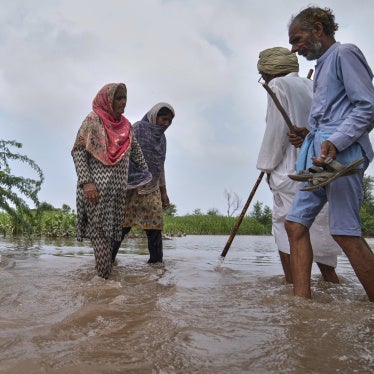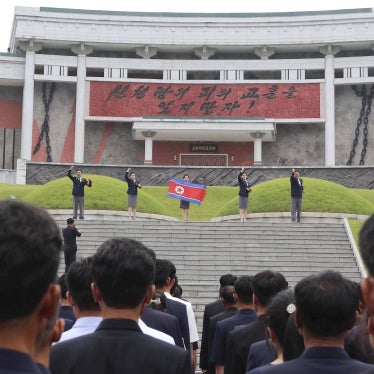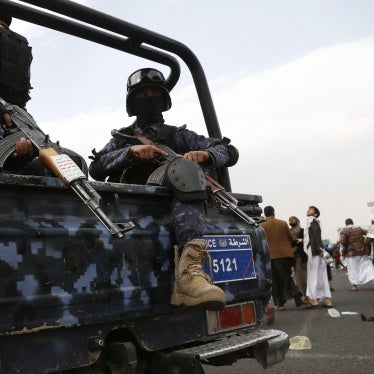Special to Globe and Mail Update
Prime Minister Stephen Harper is right to insist that Canada should not sell out human rights in order to promote trade and investment with China. Now he has an opportunity to show he is serious — when he meets with Chinese President Hu Jintao on the sidelines of the APEC meeting in Vietnam.
Human rights must be part of the discussion because China's record — already poor — has deteriorated markedly over the past two years. First came a crackdown on the already tightly controlled press. Editors have been jailed, newspapers closed. Then it was the Internet. Censorship regulations were tightened, websites taken down, cyber dissidents arrested. Next the lawyers found themselves in the authorities' crosshairs: Three top human-rights lawyers have been thrown in jail in a matter of months. Other civil rights advocates have been assaulted by thugs with total impunity. Now it's a clean-up of Beijing's undesirables — migrant workers and their children, beggars and people without a city permit — in the name of beautification efforts for the 2008 Olympics.
Canada knows firsthand of Beijing's callousness through the case of Huseyin Celil, a Canadian citizen currently imprisoned in China. Mr. Celil is a member of the Muslim Turkic-language Uighur minority, which China persecutes under the flag of "counterterrorism." He fled the country in the mid-1990s after he had been imprisoned because of his religious activities and was recognized as a refugee. Some months after becoming a Canadian citizen, as he was visiting relatives in Uzbekistan, he was arrested and extradited to China, at which point he disappeared. Chinese officials, claiming that Mr. Celil is a Chinese citizen, have refused even to discuss his case or permit Canada consular access.
In spite of the case's notoriety, no one has been able to confirm if Mr. Celil has been tried. It's not clear what article of China's criminal code he has allegedly violated. It is not even known where he is held. No one — including his relatives in China — has seen him since his arrest.
Pressing to get Mr. Celil released would be a good place to start in Mr. Harper's meeting with Mr. Hu, but Canada can do more than that.
It could act as an exemplar by insisting that human rights be at the centre of Canadian-Chinese relations. It could insist that the moribund, so-called "human rights dialogue" it has with China becomes the litmus test of the relationship, instead of the marginalized fig leaf it is now (as it is with China's other "dialogue partners").
On a practical level, Ottawa could condition its legal co-operation programs on real, measurable, progress on the ground. It could work with Canadian companies, such as Nortel, to ensure that they do not sell technologies that enable China's Internet censorship.
Perhaps most important, Canada could take a leadership role in regularly voicing concerns about ongoing violations of the basic rights of Chinese citizens — and to press other countries that have lost their voices in recent years because they unnecessarily fear the loss of Airbus or Boeing sales if they speak out. As our Chinese partners tell us again and again, international pressure is what matters most when it comes to improving human rights in China.
Of course, trade also matters. But contrary to what some business advocates claim, a strong human rights agenda does not conflict with economic interests. When rumours floated recently that there would be no Harper-Hu meeting in Hanoi, critics suggested the government should cave in on human rights. But Mr. Harper stood firm and the meeting offer has been revived.
As a rising global power, China needs to demonstrate that it is ready to abide by existing international norms, including human rights and the rule of law. But it won't feel so obliged if nobody asks. Canada has the opportunity to lead the world in insisting on better human-rights compliance from China. It should seize it.
Canada has taken steps in the right direction, but if it stops now it will have missed its moment. If it does not speak ever more forcefully about the need for human-rights protections, if it does not defend China's brave human-rights and democracy activists, if it does not condemn when condemnation is in order, it will undermine the long-standing commitment to universal rights values of which it is justly proud.
In response to press reports about the Harper-Hu meeting, Chinese officials have repeated their tired admonitions about not interfering in China's internal affairs. Canada should ignore this. Not to comment on harsh policies and practices that affect the rights of 1.3 billion people would be irresponsible. The right to speak freely, to associate with whom one wishes, to believe as one chooses, to be protected from torture, and be protected by the rule of law are universal values. Canada should make it clear to China that no matter how powerful it becomes, and no matter how large its economy, basic principles come first.
Brad Adams is Asia director at Human Rights Watch.








